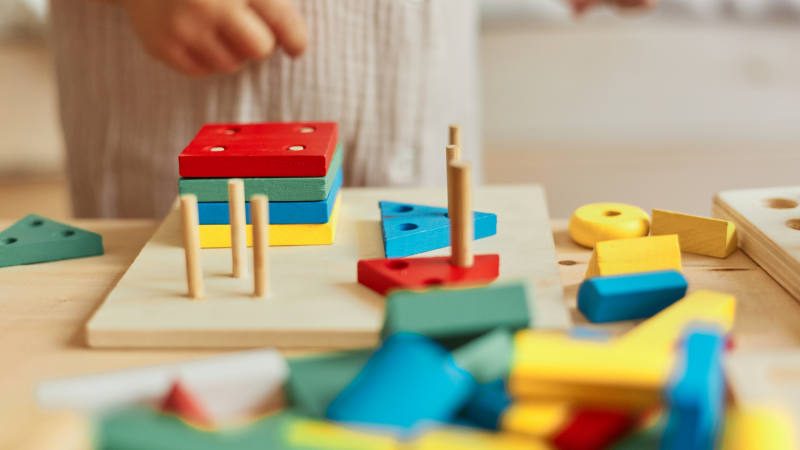How Play Promotes Cognitive & Creative Development?
Play has long been recognised as a critical factor in shaping a child's intellectual development. Both Vygotsky and Piaget emphasized the importance of play in cognitive growth. Play activities that involve imaginative play or pretend play are the purest forms of symbolic thought available to young children. As children play, they learn problem-solving, experimentation, and critical thinking skills. They also acquire math, science, and literacy skills through play. For example, playing games like Simon says or practicing shapes or colours games can help children learn language skills.
Play also fosters creativity and imagination, which are essential components of cognitive development. Children engage and interact with the world around them through play, and activities like drama, music, dance, and visual arts help foster creativity and imagination.

These activities also allow children to explore their senses through discovery and exploration. For example, they might express their feelings through painting, drawing, dancing, or singing. Play provides children with a space to think, problem-solve, and explore various answers to a single situation, drawing on their power of imagination. The experiences children have during their early years of life can significantly enhance the development of their creativity.

Creative development
Creative play is a crucial component of a child's overall development. Through play, children can experiment with different ideas and ways of doing things, developing their creativity and imagination. They can try out different roles, scenarios, and solutions, learning through their experiences. Creative play encourages children to think outside the box and develop their problem-solving skills. It also promotes a sense of independence and self-reliance, allowing children to explore and express themselves in their unique ways.
Creative play includes activities like building with blocks, creating art, and playing dress-up. These activities help children learn to explore their surroundings and experiment with different materials, textures, and colors. They also encourage children to express themselves through different mediums, whether that's through drawing, painting, sculpting, or dancing.

In conclusion, play is a vital component of a child's overall development. It helps children develop physically, socially, emotionally, cognitively, and creatively. It offers children a safe space to explore their surroundings, experiment with different ideas, and develop their problem-solving and critical thinking skills. Play also fosters creativity and imagination, allowing children to express themselves in unique ways and learn through their experiences.

